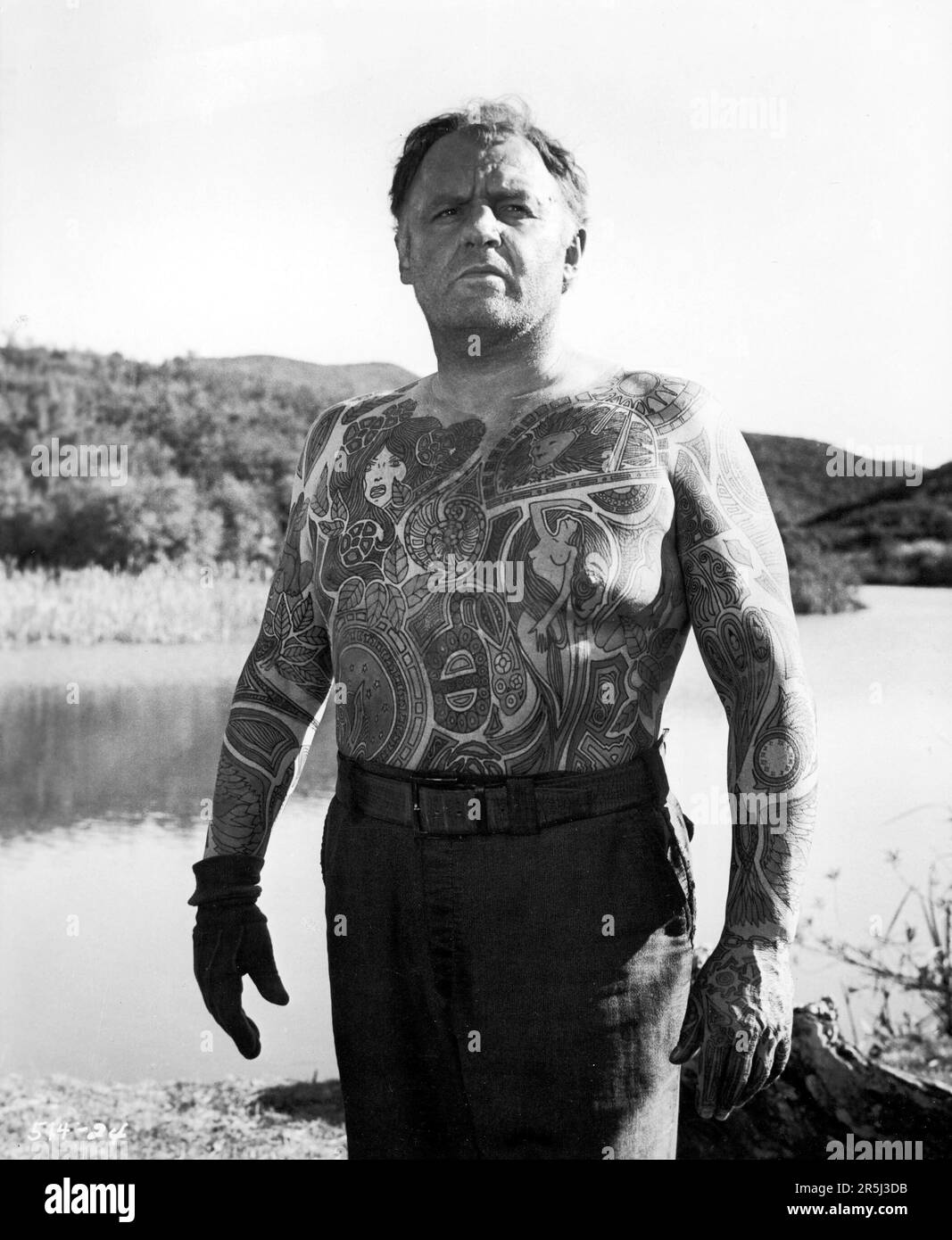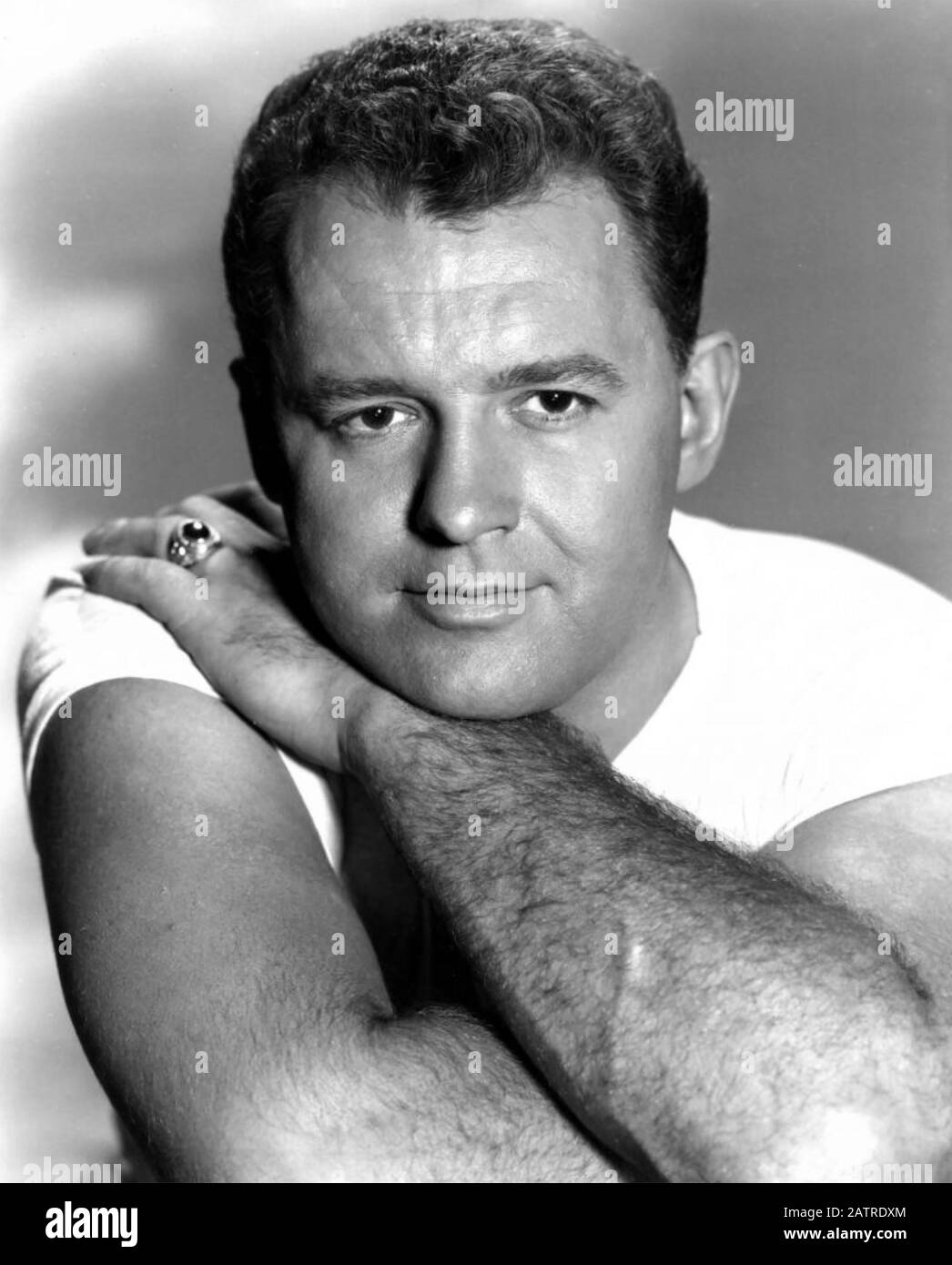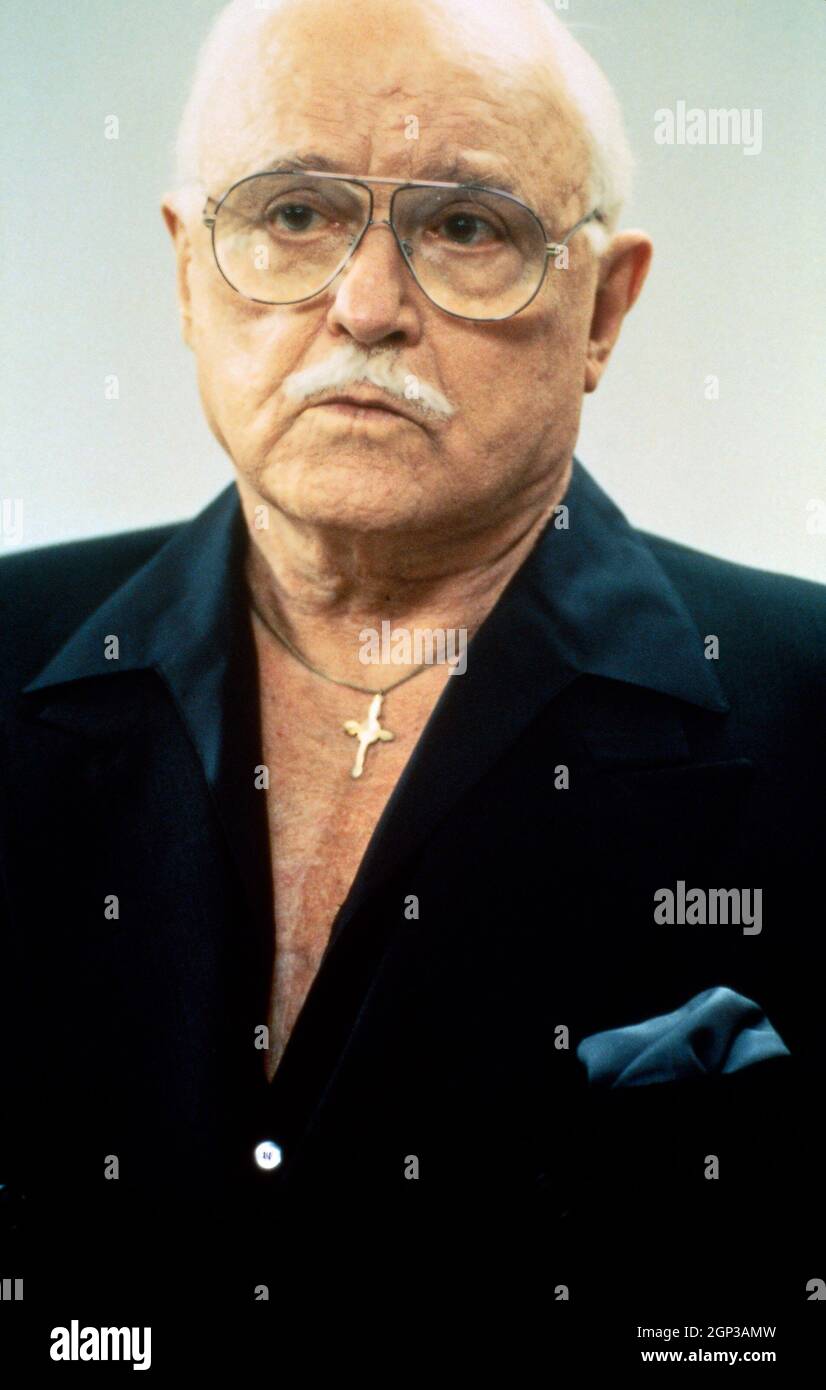Rod Steiger - An Actor's Unforgettable Presence
When you hear the simple word "rod," your thoughts might drift to something quite tangible, perhaps a straight, slender stick taken from a tree, or maybe a long, thin pole made of wood or metal. It could even be a surveyor's tool, a specific unit of measurement that's 16½ feet, or even those sturdy steel bars holding up a building, making it strong. A "rod" can be a foundational piece, a guiding line, something that offers support. Yet, when we speak of the performer, Rod Steiger, we're talking about a human being whose artistic contributions were, in their own way, just as foundational and often unyielding on the silver screen, but with an incredible depth of feeling and a spirit that was far more intricate than any simple object.
He was a person who brought a powerful, almost raw honesty to every part he took on, making characters feel truly lived-in, whether they were heroes, villains, or just people trying to make their way. His way of acting, you know, it just grabbed hold of you, drawing you right into the story he was telling. He had a knack for showing you the hidden parts of people, the stuff that usually stays tucked away, and he did it in a way that was, well, really quite something to see.
This article will take a closer look at the life and work of Rod Steiger, exploring what made his performances so memorable and how he left his mark on the world of film. We'll consider his beginnings, the way he approached his roles, and the enduring impact of his unique artistry. So, stick around to get a better sense of this remarkable individual.
Table of Contents
- Rod Steiger - The Life of a Performer
- Personal Details and Bio Data
- What Made Rod Steiger's Acting So Powerful?
- How Did Rod Steiger Shape His Roles?
- Beyond the Camera - Rod Steiger's Personal Struggles
- Was Rod Steiger's Legacy Truly Understood?
- Rod Steiger's Impact on Modern Cinema
- What Lessons Can We Learn from Rod Steiger's Career?
Rod Steiger - The Life of a Performer
Rodney Stephen Steiger came into the world on April 14, 1925, in West Hampton, New York. His early years were, in some respects, not easy. He spent time in foster homes, and his family life had its share of ups and downs. This background, you might say, really shaped the kind of person he became and, perhaps, the kind of actor he would grow into. He joined the United States Navy during World War II, serving on a destroyer. This experience, it’s often said, gave him a sense of purpose and discipline that he carried with him later on.
After his time in the military, Steiger found his calling in acting. He joined the Actors Studio in New York City, a place known for its method acting approach, which encourages performers to really dig deep into their characters' inner lives. Here, he learned alongside other soon-to-be famous actors, honing his skills and developing that intense, truthful style that would become his trademark. He started out on television, appearing in many live dramas during the 1950s, a time when TV was still very new and exciting. He quickly gained a reputation for his powerful performances, even in small parts, which just goes to show you his dedication.
His big break in film arrived with "On the Waterfront" in 1954, where he played Charley Malloy, the brother of Marlon Brando's character. Even though it wasn't the main role, his scene in the back of the taxi with Brando is still considered one of the most memorable moments in movie history. It showed everyone just how much feeling and complexity he could bring to a part, making a lasting impression. From that point on, his career really took off, and he became known for taking on challenging, often troubled characters that required a lot of emotional work. He was, in a way, a very dedicated craftsman of his art.
He wasn't afraid to step into the shoes of people who were, well, a little rough around the edges or those grappling with big, complicated feelings. This willingness to go to those deep places is, basically, what set him apart. He had a way of making you believe every single word, every single gesture, like you were seeing a real person, not just someone pretending. His early life experiences, it seems, gave him a special insight into the human condition, which he then poured into his work, making his portrayals feel truly authentic and, you know, very compelling.
Personal Details and Bio Data
| Detail | Information |
|---|---|
| Full Name | Rodney Stephen Steiger |
| Born | April 14, 1925, West Hampton, New York, U.S. |
| Died | July 9, 2002 (aged 77), Los Angeles, California, U.S. |
| Spouse(s) | Sally Grace (m. 1952; div. 1958) Claire Bloom (m. 1959; div. 1969) Sherry Nelson (m. 1973; div. 1979) Paula Ellis (m. 1986; div. 1997) Joan Benedict Steiger (m. 2000) |
| Children | Anna Steiger (with Claire Bloom) |
| Notable Roles | Charley Malloy in "On the Waterfront" Sol Nazerman in "The Pawnbroker" Chief Bill Gillespie in "In the Heat of the Night" Carl Foreman in "The Big Knife" |
| Awards | Academy Award for Best Actor ("In the Heat of the Night") Golden Globe Award for Best Actor – Motion Picture Drama BAFTA Award for Best Actor |
What Made Rod Steiger's Acting So Powerful?
Many people who watched Rod Steiger perform often talked about the sheer intensity he brought to his roles. It wasn't just about yelling or big gestures; it was a deeper kind of power that came from within. He had a way of making you feel the weight of a character's thoughts and feelings, even when they weren't saying much. This particular quality, it seems, made his performances stand out in a big way. He was, in a sense, a master at showing the unspoken parts of a person's life.
He was a practitioner of method acting, which meant he would really try to live inside a character's skin, to understand their motivations and their inner world. This wasn't always easy, and sometimes it took a toll on him, but it also allowed him to create truly believable and complex individuals on screen. He would often spend a lot of time researching his roles, trying to get every detail just right, which, you know, really helped him get into the spirit of things. This dedication to getting it right was, basically, a hallmark of his work.
His voice, too, played a significant part in his power. It had a gravelly, distinctive quality that could convey a wide range of emotions, from quiet contemplation to explosive anger. He used it like a fine instrument, changing its tone and rhythm to fit the moment. This, combined with his expressive face and eyes, meant that even a slight shift in his demeanor could tell a whole story. He had a natural ability to command attention, making it hard to look away when he was on screen, which is, honestly, a rare gift for any performer.
The Rod Steiger Approach to Character
Rod Steiger was known for his commitment to finding the human element in every character, no matter how flawed or unlikable they might seem on the surface. He believed that everyone had a reason for their actions, and he worked hard to show those reasons, even if they weren't pretty. He didn't just play roles; he, in a way, inhabited them, giving them a pulse and a life of their own. This approach meant that his characters felt real, with all their contradictions and complexities, which is, you know, very important for good storytelling.
He often talked about the importance of truth in acting, and you could see that commitment in every scene. He wasn't interested in superficial portrayals; he wanted to get to the heart of the matter. This meant he wasn't afraid to be vulnerable or to show the darker sides of humanity, which, you know, can be a bit unsettling for some viewers but also incredibly rewarding. His performances were, basically, a kind of raw exploration of the human spirit, making him a truly unique presence in film.
How Did Rod Steiger Shape His Roles?
Rod Steiger had a remarkable ability to take a written character and breathe a unique kind of life into it, making it entirely his own. He didn't just recite lines; he embodied the person, bringing a deep understanding to their motivations and inner turmoil. For example, his portrayal of Sol Nazerman in "The Pawnbroker" is a striking example of this. He played a Holocaust survivor living in New York, burdened by the terrible memories of his past. Steiger's performance was, in a way, a quiet storm of pain and numbness, showing the lasting effects of trauma without needing to say much at all. It was a very powerful and, you know, truly moving performance.
Then there's his iconic role as Chief Bill Gillespie in "In the Heat of the Night." Here, he played a Southern police chief who starts out with strong prejudices but gradually comes to respect Sidney Poitier's character, Virgil Tibbs. Steiger showed Gillespie's journey with such subtlety, allowing the audience to witness his internal shifts and growth. It wasn't a sudden change; it was a slow, believable process, which is, honestly, very hard to pull off. He made the character feel like a real person struggling with his own beliefs, which, you know, really made the film resonate with people.
He also took on parts that were, well, quite different from each other, showing his range as a performer. He played everyone from Al Capone in "Al Capone" to Pontius Pilate in "Jesus of Nazareth," and even a rather eccentric character in "No Way to Treat a Lady." No matter the role, he found a way to make it authentic and memorable, which is, basically, a sign of a truly great actor. His dedication to each character was, in some respects, unwavering, making every portrayal feel distinct and fully realized.
Rod Steiger's Unmistakable Presence
When Rod Steiger appeared on screen, he had a way of filling the space, not just with his physical self, but with a kind of emotional weight that was hard to ignore. He had a natural gravitas that made even his quieter moments feel significant. This presence wasn't about being flashy; it was about a deep, internal power that radiated outwards. It was, in a way, like he carried the entire history of his character with him, making every scene feel rich with unspoken stories.
His eyes, too, were a big part of this. They could convey so much without a single word being spoken – pain, anger, confusion, or a flicker of understanding. He used his entire body to tell the story, from the way he held himself to the smallest gesture. This holistic approach to acting meant that his characters felt incredibly real, like you were watching a person, not just a performance. It was, basically, a masterclass in how to command attention and, you know, truly draw an audience into a story.
Beyond the Camera - Rod Steiger's Personal Struggles
While Rod Steiger was celebrated for his powerful performances, he also faced significant personal challenges throughout his life. He was quite open about his struggles with depression, which, you know, can be a very difficult thing to live with. This mental health struggle sometimes affected his work and his relationships, making his life off-screen as complex as some of the characters he played. It’s a reminder that even those who seem incredibly strong on the outside can be battling unseen difficulties.
He once spoke about how the intensity of his method acting could sometimes blur the lines between himself and the characters he was portraying. Getting so deeply into a role, especially those that were dark or troubled, could make it hard to step back out of them when the filming stopped. This dedication, while it made for incredible performances, also came with a personal cost. He was, in a way, giving so much of himself to his art that it sometimes left him feeling, well, a bit drained.
His personal relationships, including his marriages, also saw their share of difficulties. The pressures of a demanding career, combined with his own internal battles, often created complications. Despite these struggles, he continued to work, to push himself, and to seek out roles that challenged him. This perseverance, you know, really speaks to his inner strength and his commitment to his craft, even when things were tough. He was, basically, a person who kept going, no matter what came his way.
The Man Behind Rod Steiger's Public Image
Behind the intense, commanding presence on screen, Rod Steiger was, in some respects, a sensitive and thoughtful individual. He cared deeply about his work and about the world around him. He wasn't always comfortable with the spotlight that came with fame, preferring to focus on his acting rather than the celebrity lifestyle. This might surprise some people, given the larger-than-life characters he often played, but it speaks to his genuine dedication to his art.
He was known for his honesty and his straightforward manner, sometimes to a fault. He wasn't one to shy away from telling it like it was, even if it wasn't what people wanted to hear. This directness, you know, was a part of who he was, both as a person and as an artist. He carried himself with a certain integrity, always striving for truth in his performances and in his life, which is, basically, a quality that many people admired about him.
Was Rod Steiger's Legacy Truly Understood?
Rod Steiger's impact on acting and cinema is, in many ways, still felt today, even if his name isn't always at the forefront of every discussion about great actors. He was a pioneer of method acting in Hollywood, helping to bring a new level of psychological depth and realism to film performances. His work inspired countless actors who came after him, showing them what was possible when you truly committed to a character. He was, in a sense, a trailblazer, opening up new paths for others to follow.
While he received significant acclaim during his career, including an Academy Award, some might argue that the full scope of his artistic contributions isn't always fully appreciated. He took risks, chose unconventional roles, and often pushed boundaries, which, you know, isn't always easy for audiences or critics to fully grasp at the time. His performances were often so raw and intense that they could be, well, a little unsettling, which sometimes made them harder to categorize or praise in a simple way.
His work continues to be studied in acting schools, and his films are still watched by those who appreciate truly powerful and honest performances. He left behind a body of work that is, basically, a testament to his unique talent and his unwavering dedication to his craft. The characters he brought to life remain vivid and compelling, reminding us of his incredible ability to capture the complexities of the human spirit. So, his influence, you could say, still very much lingers in the air.
Remembering Rod Steiger's Contributions
When we look back at Rod Steiger's career, it's clear he gave so much to the world of film. He wasn't just an actor; he was, in a way, an artist who used his body and voice to explore the deepest parts of human experience. He showed us that even the most flawed characters could be understood and, sometimes, even empathized with. His performances were often fearless, pushing past what was comfortable to get to a deeper truth, which is, you know, a very brave thing for any performer to do.
He helped to define a certain kind of acting that valued authenticity and emotional honesty above all else. His legacy is found in the powerful moments he created on screen, the characters who still resonate with us, and the example he set for future generations of actors. He was, basically, a true original, and his contributions to cinema are, in some respects, truly invaluable.
Rod Steiger's Impact on Modern Cinema
Rod Steiger's influence, though sometimes subtle, still weaves its way through modern cinema. His commitment to method acting, to truly becoming the character, set a high bar for authenticity that many performers still strive for today. You can see echoes of his intense, internal approach in actors who delve deep into the psychological makeup of their roles, trying to bring a raw, unvarnished truth to the screen. He showed that acting wasn't just about reciting lines; it was about, well, living a life, even if just for a short time

The illustrated man 1969 rod steiger hi-res stock photography and

Rod Steiger

Rod Steiger